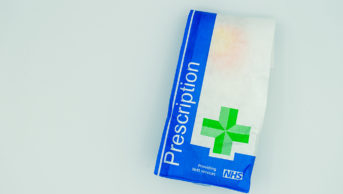
Wikipedia / Creative Commons
The US Food and Drug Administration (FDA), which is responsible for evaluating the safety and efficacy of medicines in the United States, has given the green light to valbenazine (Ingrezza), the first drug to be approved for treating adults with tardive dyskinesia.
Tardive dyskinesia is a neurological disorder characterised by repetitive, involuntary movements of the jaw and lips, such as grimacing and lip-smacking. It is a side effect sometimes seen in patients who have been treated with antipsychotic medications for long periods, such as those for schizophrenia and bipolar disorder, although it is unknown why.
“Tardive dyskinesia can be disabling and can further stigmatise patients with mental illness,” says Mitchell Mathis, director of the Division of Psychiatry Products in the FDA’s Center for Drug Evaluation and Research. “This is an important advance for patients suffering with this condition.”
Valbenazine was approved following a clinical trial comprising 234 participants that compared the drug to a placebo. At six-week follow-up, those who had received valbenazine saw improvement in the severity of their abnormal involuntary movements compared with those who received a placebo.
Side effects of the drug include sleepiness and heart rhythm problems. Consequently, it should not be given to patients with congenital long QT syndrome.


